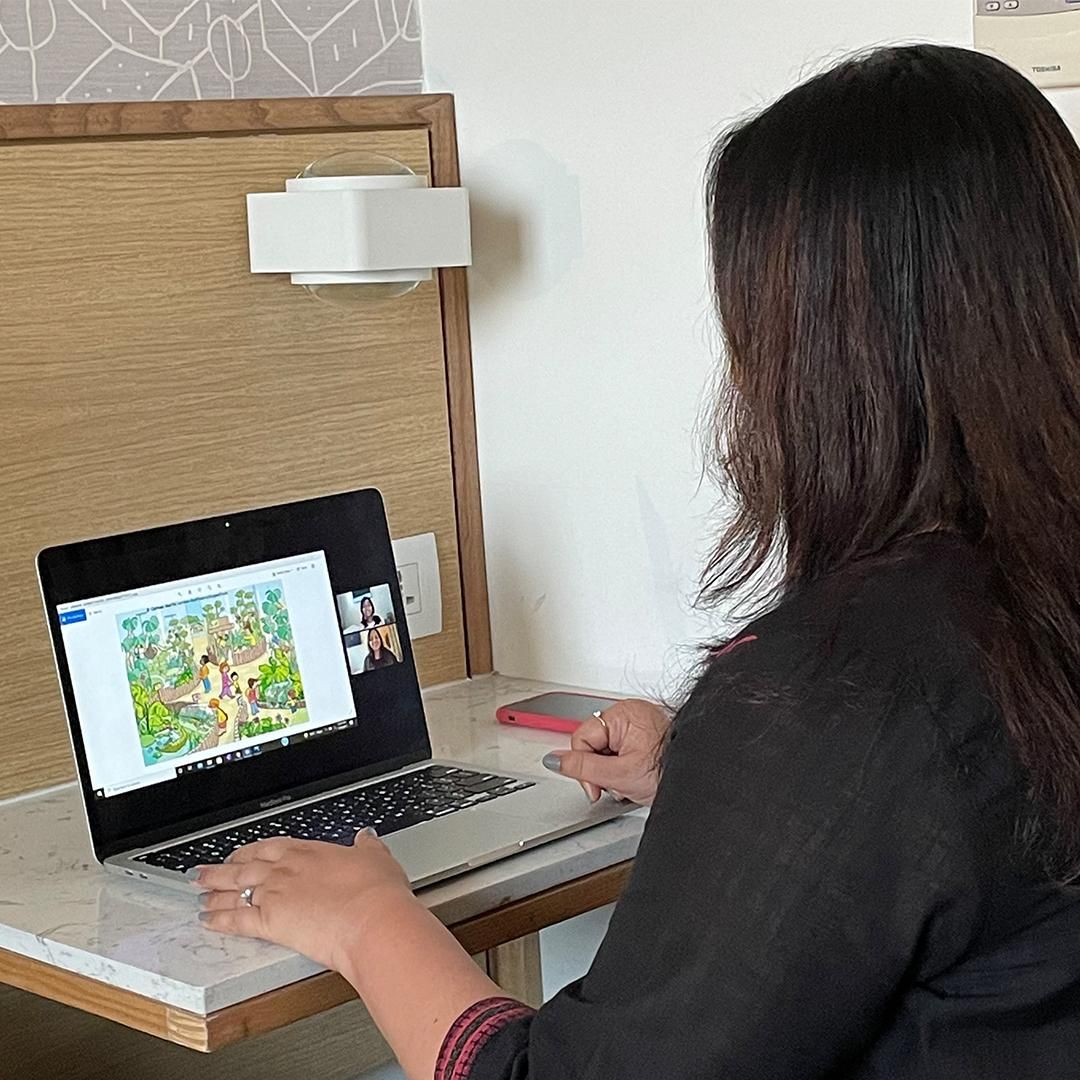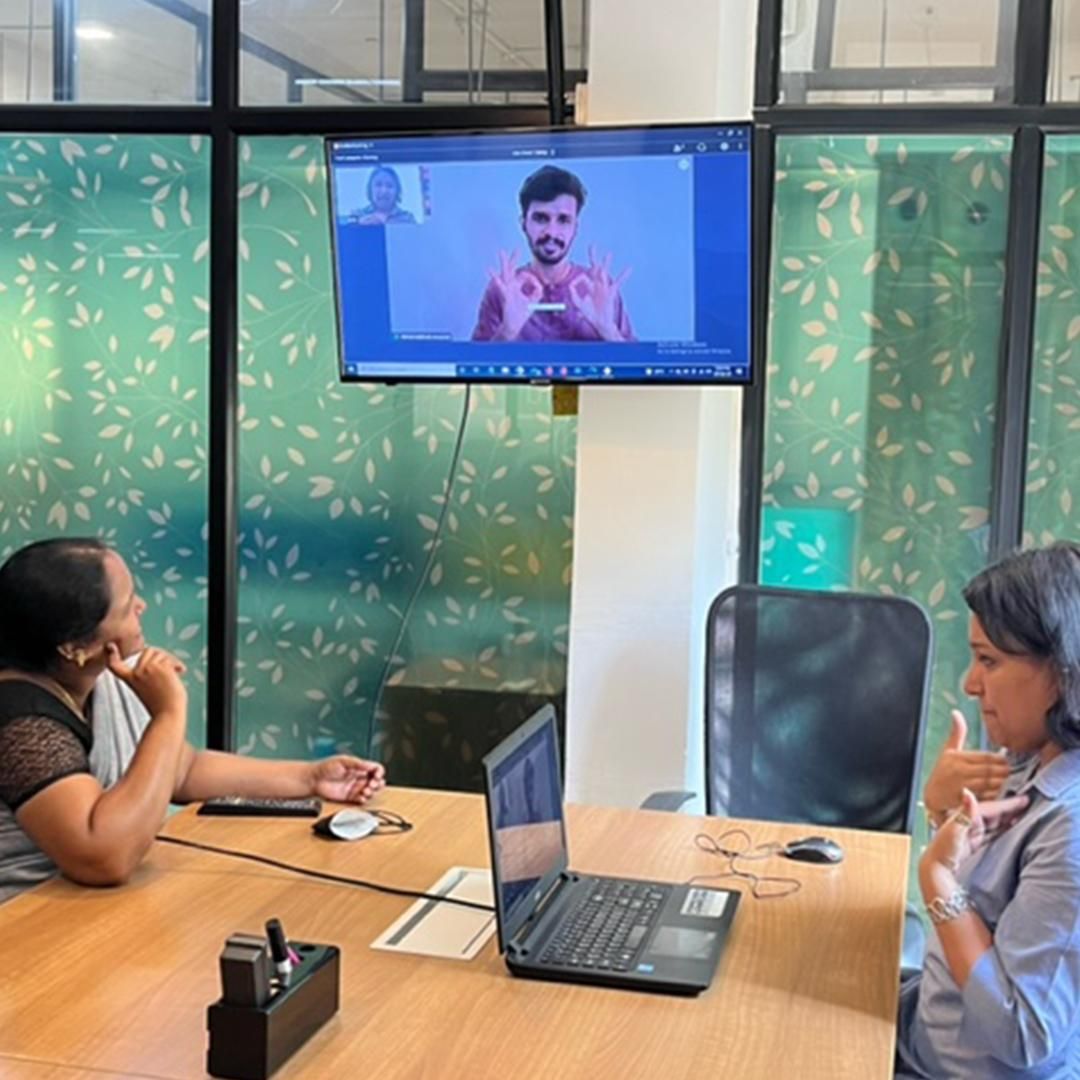In a career spanning 20+ years as a speech pathologist, Elizabeth Jean Thomas has seen it all. But one case stands out for the impact of the intervention. Through a common contact, the parents of a boy called Samarpan (name changed) reached out to her to treat his stammering. Living in a small town in UP, they had earlier taken him for treatment to Kanpur a couple of times. But they discontinued speech therapy due to the travelling involved. Meanwhile, Samarpan was being bullied in school for stammering and he became silent and withdrawn at home with frequent temper tantrums.
“The parents took him to a psychologist and that’s when the boy confided in her about the harassment from peers. It was the psychologist who referred the boy to us. After extensive speech and behavioural therapy, Samarpan has shown remarkable progress,” recalls Elizabeth, Co-founder and CEO, Phonologix Health Solutions that was incubated at NSRCEL, IIM Bangalore, and Social Alpha. The startup offers a host of services online, including speech therapy for children and adults, parent coaching program, applied behaviour analysis, occupational therapy, and special education (https://phonologixtherapy.com/).
Since its launch in 2020, Phonologix has catered to hundreds of clients, mostly children, and provided over 4,000 online sessions. The treatment is aimed at those who have pronunciation errors, fluency disorders (stammering), speech and language delay, and communication difficulties due to hearing impairment, autism, cerebral palsy, and Down Syndrome.
How therapy works

Phonologix: delivering speech therapy online
For a person without speech and language disabilities, the biological process is hearing, understanding, thought processing, voice production, and articulation. Inability to follow one or more steps in this process can be classified as disability.
“Speech and language therapy isn’t just about making them talk. It involves improving functional communication skills, making them understand the words they hear, developing their capability to initiate a conversation, and – in case of a non-verbal child – teaching them to clearly indicate their needs in whichever way possible,” says Elizabeth, who, along with co-founder Praveena R, has been imparting online therapy since 2016. Praveena too has an experience of 20+ years in speech-language pathology and audiology.
Market potential
Phonologix has the potential to play a pivotal role in India where over 5,000 speech language pathologists are supposed to address the communication difficulties and delays of 20 million+ children. This overwhelming demand-supply mismatch comes into stark relief as most of these therapists practice in metros and other big cities, leaving children in small towns and villages without access to proper care. Moreover, the cost of therapy is high, and sessions may continue for months, putting most middle-class households under severe financial strain.
The startup’s online approach can alter the landscape by making treatment both accessible and affordable. “Our web advertisements have elicited calls from Madurai, Coonoor, Erode, Kochi, Patna, Jaipur, Indore, Lucknow, Darjeeling, Allahabad, Kanpur, Bareilly, and other towns and tier II cities, besides the metros. With deep penetration of the internet, there is no need to travel for treatment, says Praveena. “Moreover, Phonologix also offers easy solutions for parents through their platform, which encourages frequent practice of the communication goals in natural communication settings (ie, in real-life situations). Consequently, the child learns faster and fewer sessions are required with the therapists, thus reducing the costs for families,” she says.
The startup has roped in multilingual speech pathologists who are adept at providing therapy in vernacular languages – another way of improving access. Clients also come in through referrals from paediatricians and psychologists in Gurugram (where Elizabeth had worked for 10 years) and Chennai (where Praveena is based). “We conduct one-on-one sessions through video calls. The sessions are held twice or thrice a week and continue on an average for four months. But those with autism, hearing impairment etc. may need therapy for up to a year or even more,” says Elizabeth. The startup is in the process of building an online platform that will enable standardisation of therapy.
How SignAble works

Signable: Making workspaces inclusive through on-demand interpreter services
The deaf community’s struggle for inclusion eases considerably with SignAble’s innovation that bridges the communication gap between the hearing impaired and the hearing person through an app that offers the services of an interpreter.
Either the hearing person or the deaf individual can initiate a video call through the app where an interpreter simultaneously conveys the messages to both parties. “For the deaf, the app empowers them to carry an interpreter around to negotiate everyday situations, be it at the doctor’s, marketplace, or even while dealing with the police,” says Tarun Sarwal, founder-CEO, SignAble Communications.
Tarun’s long association with the International Committee of the Red Cross had given him an intimate understanding of the needs of the disabled as well as the market failures in the Assistive Technology sector.
Currently, the startup has 30 interpreters on its payroll. However, given the surge in demand and market opportunities, it is training 300 interpreters to offer an on-demand service.
SignAble’s business model focuses on four strategies:
Subscription model: Both the hearing and the deaf can buy a subscription service, which can give them a certain number of minutes of interpretive services.
Collaborate with companies promoting an inclusive workplace: SignAble has a dedicated team of interpreters to solve communication issues that Amazon’s deaf employees face in their interactions with hearing colleagues. Amazon has set up kiosks at its warehouses where people can avail of an interpreter’s service round the clock. The same model can be replicated in banks, offices and other public utility services.
Making the onboarding process in organisations accessible: SignAble’s hybrid model makes Learning and Development materials accessible by making videos in sign language as well as offering interpreters in live events.
Webinars, team meetings: With remote work becoming the new normal, the startup offers services to make work effective and inclusive.
Role of SIDBI and Social Alpha
Social Alpha and Small Industries Development Bank of India (SIDBI) have come together to support Phonologix and SignAble through the Assistive Technology Market Access (ATMA) fund and one-on-one guidance for building products and expanding the markets.
Both startups have shown verifiable impact in the last one-and-a-half years through the support of both institutions, say Ashesh Rajhans and Ankita Shirodariya, portfolio managers of Phonologix and SignAble, respectively, at Social Alpha.
“In the speech therapy delivery model, the experience depends upon the quality of speech language pathologists/ trained audiologists. Praveena and Elizabeth have a clear advantage due to their extensive experience. The founders have recognised that the limited number of speech language experts is the biggest hurdle in expanding beyond metros and big cities. Their vision is to build a new blended model that will cater to a new set of customers who may not be able to access/afford therapy services today,” Ashesh says.
SignAble too focuses on building a more empathetic and inclusive society through its solution. As Ankita says, “SignAble is a unique platform that was co-created along with the users and continues to grow with them at the centre. This innovation makes disability services mainstream, a major shift from providing philanthropic aid to the disabled to enable them to live independently.”
“ATMA will allow SignAble to increase its user base, reach out to new customers, and get them to use its service at subsidised rates. This will ensure that they are able to reach out to users who shy away from using their services under the impression that interpreters are expensive,” she adds.
